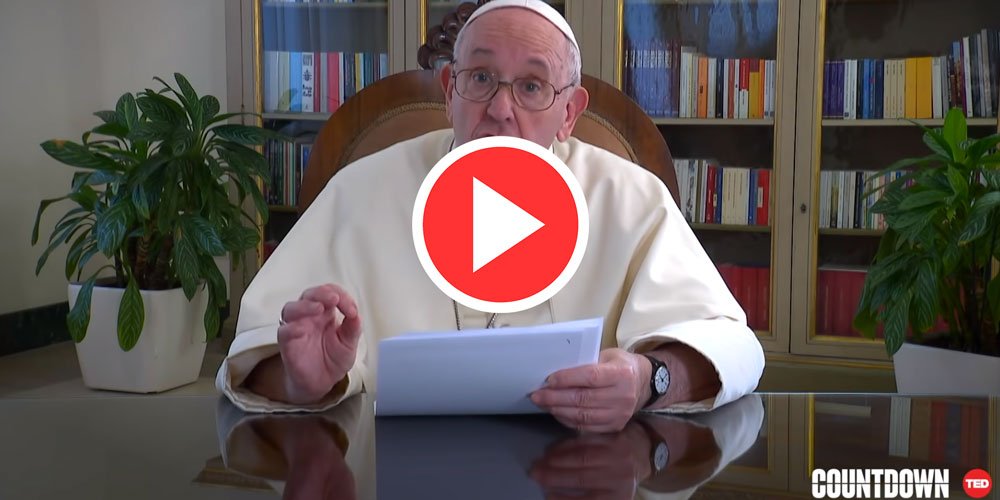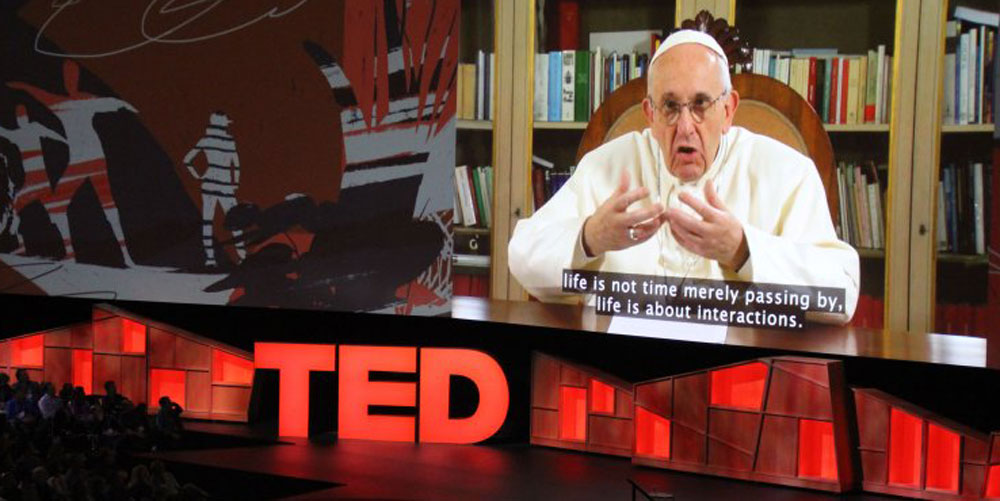The predominant global economic system is “unsustainable,” particularly in its impact on the environment, Pope Francis said.
“We are faced with the moral imperative — and the practical urgency — to rethink many things” about the economy: “how we produce, how we consume, our culture of waste, its short-term vision, the exploitation of the poor, indifference toward them, the increase of inequality and its dependence on harmful energy sources,” the pope said Oct. 10 as part of the global TEDx Countdown on climate change.
The event, broadcast live on YouTube, featured more than 50 speakers from around the world presenting “actionable and research-backed ideas, cutting-edge science, and moments of wonder and inspiration,” according to the program description.

“As the term ‘countdown’ suggests, we must act urgently,” Pope Francis said. “Each one of us can play a valuable role if we all set out today — not tomorrow, today.”
“Science tells us, every day more precisely, that we need to act urgently — I am not exaggerating — this is what science tells us, if we are to have any hope of avoiding radical and catastrophic climate change,” he said. “This is a scientific fact.”
As he has done repeatedly in the past, Pope Francis insisted that concern for the environment must go hand in hand with concern for the people who live on the Earth, especially the poor, who are most impacted by climate change and natural disasters.
“It will be necessary to go step by step,” he said, “to help the weak, to persuade the doubtful, to imagine new solutions and to commit oneself to carrying them forward.”
The pope explained that the “integral ecology” he has called for — responding to the cry of the poor and the cry of the Earth — requires seeing how “everything in the world is connected and that, as the pandemic has reminded us, we are interdependent on one another, and also dependent on our mother Earth.”
Presenting a three-part action plan, the pope said change must begin with education in the area, until it is commonly understood that environmental problems are linked to human needs.
Next, he said, priority should be given to water and food, ensuring access to safe drinking water and adequate food for all the world’s people.
The third step is that of energy transition: a progressive replacement, but without delay, of fossil fuels with clean energy sources. “This transition must not only be rapid and capable of meeting present and future energy needs, but also must be attentive to its impact on the on the poor, on local populations and on those who work in the sector of energy production.”
Socially responsible investing and stockholder activism, he added, can make companies see “the unavoidable need to commit themselves to the integral care of the common home.”
The pope recommended divesting from stock in “companies that do not meet the criteria of integral ecology and rewarding those that are making concrete efforts in this transition phase to put at the center of their activities criteria such as sustainability, social justice and the promotion of the common good.”
This article was republished from the Catholic News Service
